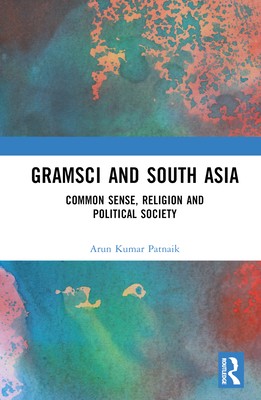
- We will send in 10–14 business days.
- Author: Arun Kumar Patnaik
- Publisher: Routledge Chapman & Hall
- ISBN-10: 1032264896
- ISBN-13: 9781032264899
- Format: 15.6 x 23.4 x 1.6 cm, kieti viršeliai
- Language: English
- SAVE -10% with code: EXTRA
Reviews
Description
Gramsci's theory of common sense is a meta-narrative that can be used to explain both religion and political formations. This book examines Gramsci's perspective and how his theories translate into South Asian society.
It explores Gramsci's historicism which is sensitive to historical, regional and national differences and its relevance in post-colonial societies. The volume discusses themes like common sense, religion, dialogue, and common sense concerning civil/political society through the lens of Gramsci's historical perspectives. It also looks at Gramscian critique of political secularism; the ideology and politics of Hindutva; civil society in the non-Western context; and modes of political society in India.
Lucid and topical, this book is a must-read for scholars and researchers of political studies, political philosophy, post-colonial studies, South Asian politics, cultural studies, and political sociology.
EXTRA 10 % discount with code: EXTRA
The promotion ends in 21d.17:44:08
The discount code is valid when purchasing from 10 €. Discounts do not stack.
- Author: Arun Kumar Patnaik
- Publisher: Routledge Chapman & Hall
- ISBN-10: 1032264896
- ISBN-13: 9781032264899
- Format: 15.6 x 23.4 x 1.6 cm, kieti viršeliai
- Language: English English
Gramsci's theory of common sense is a meta-narrative that can be used to explain both religion and political formations. This book examines Gramsci's perspective and how his theories translate into South Asian society.
It explores Gramsci's historicism which is sensitive to historical, regional and national differences and its relevance in post-colonial societies. The volume discusses themes like common sense, religion, dialogue, and common sense concerning civil/political society through the lens of Gramsci's historical perspectives. It also looks at Gramscian critique of political secularism; the ideology and politics of Hindutva; civil society in the non-Western context; and modes of political society in India.
Lucid and topical, this book is a must-read for scholars and researchers of political studies, political philosophy, post-colonial studies, South Asian politics, cultural studies, and political sociology.


Reviews